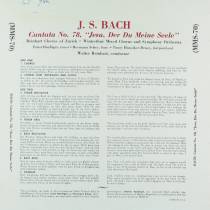 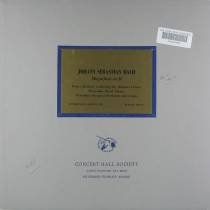
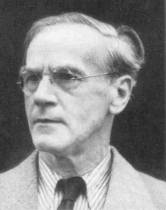
Walther Reinhart
Born: May 24, 1886 - Winterthur, Switzerland.
Died: 1975
The Swiss conductor and musicologist, Walther [or Walter] Reinhart, entered Frankfurt's Hoch Conservatoire, concentrating his studies on the violin. After three years at Frankfurt, he continued his studies at the Royal Prussian University of Berlin, now the Philipps-University of Marburg. Here Reinhart studied composition and orchestration under Max Bruch and choral singing under the choral conductor Siegfried Ochs (Siegfried Ochs founded the Berlin Philharmonic Choir and was a founding member of the Neue Bach-Gesellschaft.)
In 1911, upon completion of his studies Walther Reinhart was appointed conductor of the Philharmonic Concert Hall Goerlitz. Reinhart continued his musical studies with Max Bruch in Meiningen in 1913. From 1914 to 1918 Reinhart conducted the choir of the singing teachers association in Frankfurt, making guest performances in Munich and Stuttgart.
During the World War I, Walther Reinhart returned to Switzerland and formed the Reinhart Choir, which was based in Zürich. He also became director of Winterthur’s Mixed Choir, which often joined forces with Winterthur’s city orchestra to perform subscription concerts in Zürich and Winterthur. The Reinhart Choir also undertook several concert commitments in Germany and Italy and performed regularly at the Internationale Bach-Gesellschaft.
Walther Reinhart wrote a book and articles on J.S. Bach, which include "Die Aufführung der Johannes-Passion von J. S. Bach und deren Probleme”. First published in Leipzig by Carl Merseburger in 1933, it was re-published in Zürich by Hug in 1956. In her autobiography, "Nehmt meinen Dank” the great Hungarian/Swiss soprano Maria Stader says of Reinhart that his was a different interpretation of Bach and that despite the controversies that his renditions kindled he was "iron willed” in his approach. Maria Stader says of the Reinhart Choir that it sang accurately and with purity but that its Bach interpretations contained "certain mannerisms” resulting from Reinhart’s characteristic phrasing and accentuation.
Walther Reinhart’s commercial recordings are very rare. One of his few commercial recordings is of Bach’s Magnificat in D (BWV 243) made in the early 1950’s for The Musical Masterpiece Society. Participating artists were Maria Stader, Elsa Cavelti, Ernst Haefliger and Hermann Schey, with the Winterther Mixed Choir, the Reinhart Choir, Zürich and the Winterthur State Orchestra. 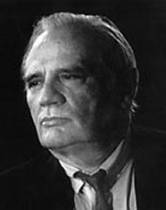
Ernst Haefliger
Born: July 6, 1919 - Davos, Switzerland
Died: March 17, 2007 - Davos, Switzerland
The noted Swiss tenor, Ernst Haefliger (Häfliger), is recognized as one of the great vocal artists of the 20th century. His worldwide reputation rests on his supreme interpretation of German Lieder, opera and oratorio which he has performed regularly throughout Europe, Japan and the USA. World-renowned for his interpretations of Bach, his performances of the Evangelist in the St. Matthew Passion (BWV 244) have set a worldwide standard. He is equally acclaimed and admired as one of the world's great lieder singers, and his recitals and master-classes have become legendary.
Ernst Haefliger studied at the Wettinger Seminary and the Zürich Conservatory. Later he became a pupil of Fernando Capri in Geneva, and of the noted tenor Julius Patzak in Vienna. He devoted himself to lieder and choral works, and soon established a reputation for impeccable style and musicianship.
He made his debut in Geneva in 1942 as the Evangelist in Bach's St John Passion (BWV 245). Ernst Haefliger entered the world of opera at the suggestion of the late conductor Ferenc Fricsay. He sang with the Zürich Opera from 1943 to 1952, and made his Salzburg Festival début in 1949 as 1st Armed Man in Die Zauberflöte. He gained wide recognition when he created the role of Tiresias in the world premiere of Orff's Oedipus (or Antigonae?) with the Zürich Opera at the Salzburg Festival in 1949. His Glyndebourne début was in 1956 as Tamino in Die Zauberflöte. From 1952 to 1974 he was a member and first lyric tenor of the Berlin Städtische (later Deutsche) Oper, but he also appeared as a guest artist with many of the principal European opera houses.
Ernst Haefliger’s roles in Mozart’s operas were particularly esteemed. It was as Tamino in The Magic Flute that he made his debut at the Lyric Opera of Chicago in 1966. His first performance in North America was at the 1959 Vancouver Festival, where he was heard by Bruno Walter who invited him to record Gustav Mahler's Das Lied von der Erde.
Ernst Haefliger pursued a distinguished career as a concert singer. His appearances as the Evangelist in Bach’s Passions were notable. One of his tours of the USA was chiefly devoted to performances of the Bach St. John Passion (BWV 245) and St. Matthew Passion (BWV 244), with stops including Boston, Hartford, Princeton, New York, and Washington, D.C. He sang in premiere performances of Frank Martin's oratorios Le vin herbé (Zürich 1942), In terra pax (Geneva radio 1945) and Golgotha (Geneva 1949).
Ernst Haefliger is applauded as one of the world's great Lieder singers, and his recitals have evoked the highest praise from critics throughout the world. He has sung regularly in the leading European concert halls, both in recital and with orchestra. During his career, he has made numerous New York appearances -- at Avery Fisher Hall with the New York Philharmonic and the Saint Paul Chamber Orchestra, and in song/voice/vocal series at the Metropolitan Museum and Carnegie Hall.
In recent seasons, Ernst Haefliger has performed the role of Speaker in Arnold Schoenberg's Gurrelieder with the Pittsburgh Symphony, Houston Symphony, Minnesota Orchestra, Toronto Symphony, Munich Philharmonic, and with the Metropolitan Opera Orchestra and James Levine in New York’s Carnegie Hall and in Tokyo. He also gave masterclasses in Zürich, at the Marlboro Music Festival, and in Japan.
Ernst Haefliger's many recordings have been released by Angel, Columbia, Vanguard and Philips Records. Deutsche Grammophon has issued a box set of twelve CD’s entitled "The Art of Ernst Haefliger,” with repertoire ranging from Bach to Janácek and including the three great Schubert song cycles.
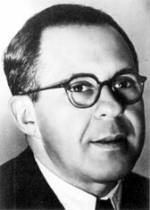
Hermann Schey
Born: November 8, 1895 - Bunzlau in the former Prussian province Silesia,Germany
Died: August 21, 1981 - Switzerland
The Jewish Dutch bass-baritone, Hermann Schey, from German origine, studied in Bunslau on the the local gymnasium. He received his musical training from 1913 to 1915 in Berlin at the Hochschule für Musik with Professor Henry von Dulong. In 1915 he was drafted as a soldier and could continue his singing studies only after war ended.
Since 1922 Hermann Schey worked in Berlin as concert and oratorio singer. He was particularly admired for his Bach interpretations. Concert tours brought him great success in the European music centers. In 1929 he sang in Amsterdam with the Concertgebouw Orchestra under Willem Mengelberg the Kindertotenlieder by Gustav Mahler, and left so lasting impression that returned since then annually to Holland, particularly to perform the memorable performances of Matthäus-Passion (BWV 244) by J.S. Bach under Willem Mengelberg. In 1930 he undertook a big tour to Poland, Russia and the Balkan States, in 1932 he gave concerts in Paris, and in 1933 in Zurich. He gave the prmiere performances of several Lieder by th songs Swiss composer Othmar Schöck, and in 1930 sang in Berlin the bass-solo in the premiere of the cantata Das dunkle Reich by Hans Pfitzner. Being a Jew, he immigrated in 1934 to Holland and became in 1936 professor at the Conservatory of Amsterdam, but continued however his successful concert activity. When Holland was occupied in 1940 by the German army, he had to hide himself hidden until the end of the war. Then he resumed his career and participated in the Holland Festival and in further international festivals. Concert tours brought him to Germany, England, Austria and to Switzerland. In 1968 he made a triumphalen tour to Israel, and appered there at the Abu Gosh Festival. In addition he continued to work as a singing teacher. He spent his old age in Switzerland. 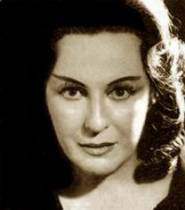
Elsa Cavelti
Born: May 4, 1907 - Rorschach, Switzerland
Died: August 10, 2001 - Basel, Switzerland
The Swiss mezzo-soprano, Elsa Cavelti, was the daughter of Johann Mathias, editor of newspapers. She studied piano and singing in Zürich, Frankfurt-am-Main and Vienna.
Elsa Cavelti made her debut at the City Theatre of Katowice (Poland) in 1936. She sang in Frankfurt-am-Main, with the State Theatre of Beuthen (Silesia, near Bytom, Poland), in Düsseldorf and at the National Opera of Dresden before joining the City Theatre of Zürich as dramatic alto. Extended tours of concerts and operas led her to the principal European and American stages. She sang many times at the premiers of Swiss composers (Paul Huber, Othmar Schoek, Frank Martin, Willy Burkhard, Rudolf Kelterborn, etc). In 1959 she undertook new studies which enabled her to sing also as dramatic soprano.
In 1964, the Academy of State of Frankfurt-am-Main offered Elsa Cavelti a post of Professor. After that she also taught in Basel where she lived.
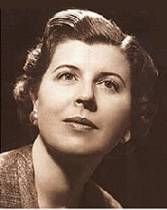
Maria Stader
Born: November 5, 1911 - Budapest, Hungary
Died: April 27, 1999 - Zürich, Switzerland
The class of concert sopranos of the highest rank, long to be considered a vanished race, has found a worthy representative in the Hungarian-born Swiss soprano, Maria Stader, a favourite soloist of many of the world’s greatest conductors. This is not to say that the world of opera was outside the range of her art. Recordings preserve a long series of her beautiful interpretations of Bach and Mozart to Gluck and Puccini. These recordings, numbering over sixty works, have made her well-known to even the most remote areas of the world, illuminating most clearly all the virtues of her uniquely pure and flexible voice, with its bright radiance, beauty and warmth which make it ideal for oratorios and Lieder recitals, commanding the lyrical sphere as surely as that of a coloratura. During the 1960’s she also built up a splendid reputation as a Lieder singer.
Maria Stader studied voice with Keller in Karlsruhe, Durigo in Zürich, Lombardi in Milan, and T. Schnabel in New York. She came to the notice of the public by winning first Prize as ‘I. Concourse international d’execution musicale the Genève’ in 1939.
After a brief career as an opera singer, Maria Stader devoted herself to a distinguished concert career after World War II. She appeared in practically every major musical festival throughout the world. She first came to the attention of the American music public when she was invited by Pablo Casals to appear at the Prades Festivals. In the USA she appeared repeatedly with all the major orchestras as well as on television. Her appearances included the Philadelphia Orchestra in Philadelphia and New York, the Chicago Symphony, as well as Master Classes and recitals at the Aspen Music Festival. Maria Stader also completed a very successful tours through South America and the Far East.
This impeccably stylistic interpreter of Mozart, in both operatic and concert settings, was awarded the Lilly Lehmann Medal, the Silver Mozart Medal from the city of Salzburg, the Austrian Order of Merit for Arts and Sciences as well as the Hans Georg Neagell Gold Medal from the city of Zürich.
Maria Stader published her autobiography ’Nehmt meinen Dank’ (Take my thanks) in 1979 and gave her final concert in 1969 at Zürich, at which one of her accompanists was the famous Hungarian pianist Geza Anda. Stader also taught voice in Zürich and published a text book on Bach arias that was translated into English in 1968.
Cantata BWV 78 'Jesu, der du meine Seele' Tenor: Ernst Haefliger Bass: Hermann Schey Harpsichord: Touty Hunziker-Druey Winterthur Mixed Chorus & Orchestra Zürich Reinhart Choir Rec.: Early 1950's BWV 243 Magnificat in D major Soprano: Maria Stader Contralto: Elsa Cavelti Tenor: Ernst Haefliger Bass: Hermann Schey
Organ: Karl Matthaei Harpsichord: Touty Hunziker-Druey
Winterthur Mixed Chorus & Orchestra Zürich Reinhart Choir Recorded live at the Third International Bach Festival at Schaffhausen, Switzerland in May 1950 Conductor: Walter Reinhart |

